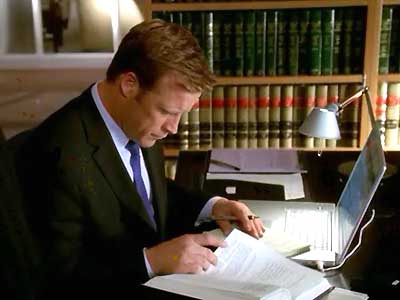Preparing for Trial: Guidelines to Ensure Your Expert Testimony is Top Notch
Great Testimony Doesn’t Proceed From Charisma Alone. It’s Mostly about Preparation. Here’s Why.
Joe Epps, CPA/CFF/ABV, CFE, CVA, explains that great expert testimony proceeds from extensive preparation of testimony outlines and demonstration exhibits to a thorough review of relevant documents, including expert reports, deposition transcripts, and a full reading of other parties’ testimony.
Much has been written for experts on the topic of how to testify. Â Articles have covered everything from proper attire to where to look when answering questions. Â Yet, delivering expert testimony in a professional manner starts well before taking the stand. Â Failure to properly prepare will, at best, result in a weaker testimony and, at worst, a terrible testimony.
Preparation begins with reviewing, reviewing, and reviewing. Â The starting point is the expert report. Â The expert report included all opinions that were expected to be rendered at trial and the basis for those opinions. Â The expert must know in detail every opinion rendered and the basis for each opinion. Â If the opinion includes a value (for example, the amount of damages or the value of a business), the expert must know the details of how the value was determined. Â This includes knowing the sources for all data. Â Not knowing what was in the report will make the expert look unprofessional to the jury. Â A jury expects an expert to know his or her opinions, inside and out.
The next step is for the expert to review his or her deposition transcript, if there is one. Â The expert should assume that those areas which were questioned in detail will likely come up in cross examination. Â This is particularly true for the questions where the expert had difficulty providing answers. Â While reviewing his or her deposition, the expert should assume that excerpts will be brought up during cross examination and shown to the jury. Â The expert should discuss with the attorney all areas where the deposition testimony was awkward or where the answers did not clearly present the opinions of the expert.
Once the expert has completed reviewing his or her own report and testimony, the expert should review the report and deposition testimony of the opposing expert. Â Particular attention should be paid to rebuttal opinions expressed by the opposing expert.
The third area of review is deposition testimony of other parties. Â Most often this includes, at a minimum, the opposing plaintiff or defendant. Â This review can be focused on the areas of testimony that are relevant to the opinions of both the expert and the opposing expert.
Once these reviews are complete, the expert should discuss his or her trial testimony with the attorney. Â While the attorney does not tell the expert what to say or what opinions to render, they usually will have specific ideas for how they want the testimony delivered. Â For example, the attorney will often have at least a general plan for the order in which the opinions are to be delivered during direct testimony. Â This can be a touchy topic when both the attorney and the expert have their own ideas of the order in which the opinions should be presented. Â This discussion also includes the level of detail to be presented to the jury. Â Ultimately, the expert must recognize that the attorney makes the final decision.
One strategy that can work well is for the expert to prepare a testimony outline. Â Some attorneys prefer to prepare the outline while others want the expert to prepare it. Â The testimony outline can be general or it can be very detailed. Â At a minimum, it should identify all issues on which the expert will testify and the order in which they will be presented. Â Direct testimony should hold no surprises for the expert or the attorney. Â At the other end of the spectrum, the expert would prepare a very detailed testimony outline, essentially providing each question to be asked and at least, in general, the answers that would be provided. Â The benefit of this is that it focuses the expert on the flow of testimony which will teach the jury about the issues leading to an understanding of the basis for the opinions.
The testimony preparation should also include collaboration between the expert and the attorney on the content of demonstrative exhibits. Â Many courtrooms now accommodate PowerPoint for presenting exhibits, for example. Â PowerPoint can be an excellent tool as long as it is used properly. Â The demonstrative exhibits must be clean, clear and concise. Â Providing too much information in one slide risks the jury getting lost. Â Too many slides increase the risk that the jury will lose interest in the entire presentation.
Preparation of the expert for trial is a time-consuming process.  The attorney should recognize that the client should be prepared for the cost of the expert’s time spent preparing, and the expert should be provided sufficient time to prepare properly.  Without proper preparation, even the best expert can look weak and fail to teach and persuade the jury.
Joe Epps, CPA/CFF/ABV, CFE, CVAÂ can be reached at jepps@eppscpa.com









